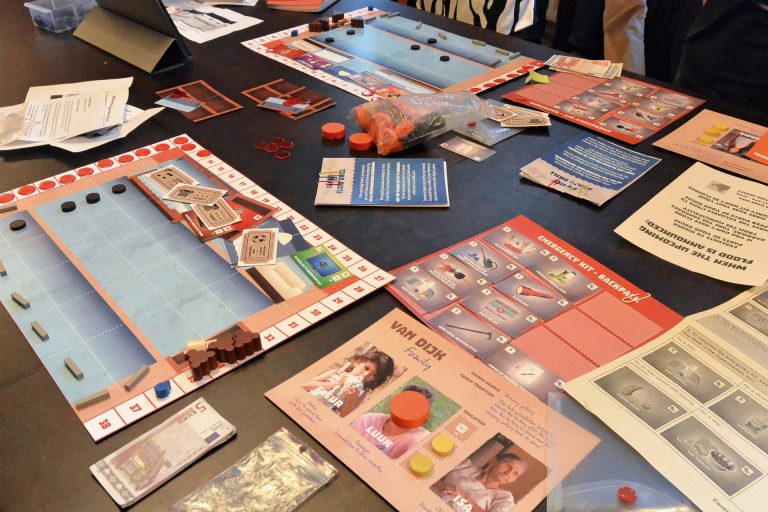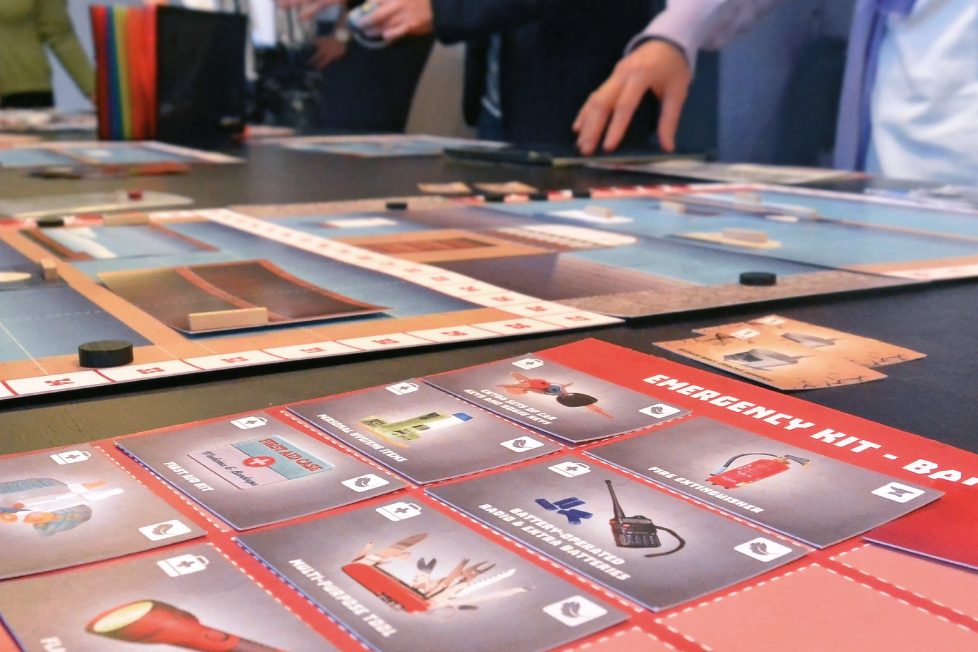When to play
Learning how historical commoners tackled challenges can be useful to solve current problems. This game (1-2 hours) can be useful to experience the relevance of gathering knowledge of the past. It is not focused on the commons but on the impact of natural disasters to the city. However, we suggest to play the game as a workshop to introduce future activities related to historical expeditions in your city. Participants will have the opportunity to get to know each other and be motivated to learn from the past of the city.
Commons-related features
- Broadcast a messageThe game disseminates a message linked to the commons (for example, the importance of participatory design of the city).
- Feel sense of communityThe game lets participants feel part of a group with shared interests and grow the sense of community.
Best contexts to play
- Community participation activityThe game can be a tool to involve people in communitarian and participation activities.
- Knowledge institution workshop or classThe game can be played in a university class or during a summer course to delve into different aspects of the commons.
- Decision-making activityThe game can guide participant decision-making in a variety of contexts, for example by facilitating a voting or consent process.
Gameplay
- Interactive/communalThe game incites a continuous exchange of information, ideas or experiences between the players. The game play is really ‘done together’.
- ExplorativeThe game lets you experience alternative worlds.
- ChallengingThe game demands a considerable effort (e.g. to act under time pressure) to succeed.
How to obtain
You can download it for free.
Check the website of the game

